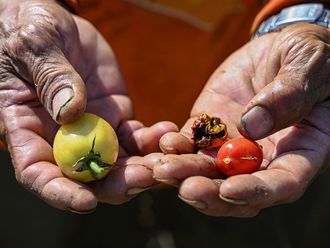Manila: Nearly two weeks after Defence Secretary Delfin Lorenzana declared the termination of combat operations in Marawi City, some militants still remain holed out in the rubbles of southern Philippines urban centre.
According to the military officials, two armed men, believed to be stragglers from the Maute Group died following an encounter with soldiers at around 8:40pm on Wednesday at the main battle area in Marawi City.
A certain Abu Talja, said to be an aide of the late Isnilon Hapilon, was one of those killed in the encounter. Hapilon, who belongs to the Abu Sayyaf, was one of the key leaders of May 23, 2017 uprising in Marawi City. He died together with Omarkhayam Maute, leader of the Maute Group, in a government operation last Oct. 23.
Hapilon and Maute waged a Daesh-inspired rebellion in predominantly Muslim Marawi.
Col. Romeo Brawner, deputy commander of the Joint Task Force Ranao, said although they had neutralised much of the extremists, some 39 stragglers are believed to be still holding out in the rubbles of the battle area in Marawi City.
The stragglers were what had remained to the estimated 1,000 Maute-Abu Sayyaf that took part in the uprising. They were reinforced by extremists from various parts of Asia, particularly Indonesia and Malaysia, as well as Singapore.
More than 950 of the extremists died in the five-month long fighting.
The number of the remaining stragglers were revealed by Mohammad Ilham Syahputra, an Indonesian who was arrested on Wednesday in Marawi City.
Syahputra, 22, was arrested in the village of Loksadatu during the early morning of Nov. 1. From Marawi City, he was taken to Quezon City for inquest. He was charged with violating the law on possession of firearms and ammunition as well as explosives.
Pockets of fighting still continued even as Lorenzana declared the termination of all combat operations in the city after almost five months of intense fighting.
Lorenzana said he hopes reclaiming Marawi would show to the world that the Philippines has been successful in its fight against extremism.
“We hope that this operational achievement in Marawi in the Philippines will be the catalyst that shall bring to the fore future cooperations and partnerships not only against terrorism but also those that shall defeat other regional and global security threats,” Lorenzana said.












